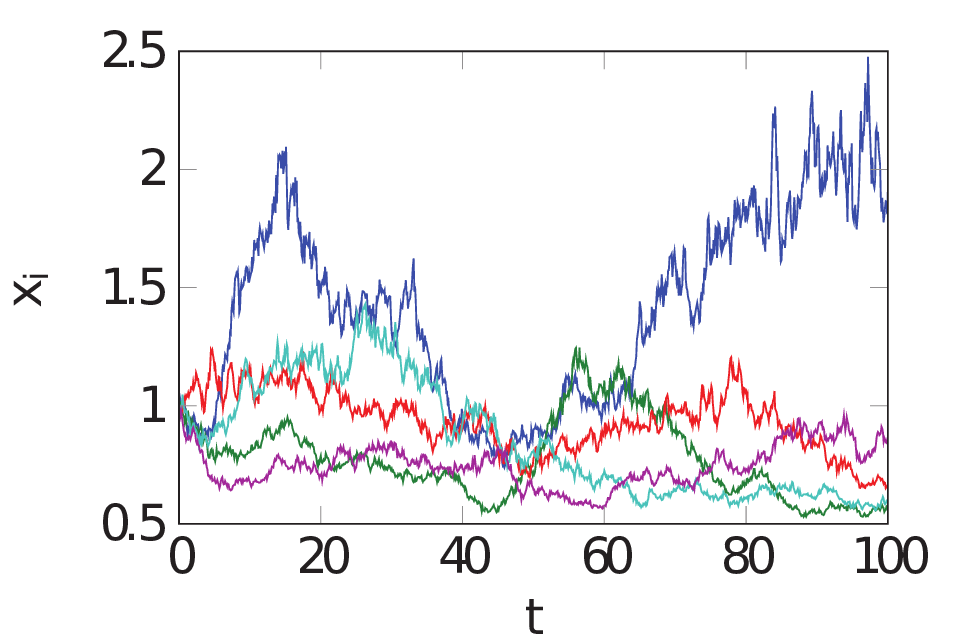The law of proportionate growth and its siblings: Applications in agent-based modeling of socio-economic systems
Frank Schweitzer
Complexity, Heterogeneity, and the Methods of Statistical Physics in Economics (2020)
Abstract
The law of proportionate growth simply states that the time dependent change of a quantity $x$ is proportional to $x$. Its applicability to a wide range of dynamic phenomena is based on various assumptions for the proportionality factor, which can be random or deterministic, constant or time dependent. Further, the dynamics can be combined with additional additive growth terms, which can be constants, aggregated quantities, or interaction terms. This allows to extent the core dynamics into an agent-based modeling framework with vast applications in social and economic systems. The paper adopts this overarching perspective to discuss phenomena as diverse as saturated growth, competition, stochastic growth, investments in random environments, wealth redistribution, opinion dynamics and the wisdom of crowds, reputation dynamics, knowledge growth, and the combination with network dynamics.

